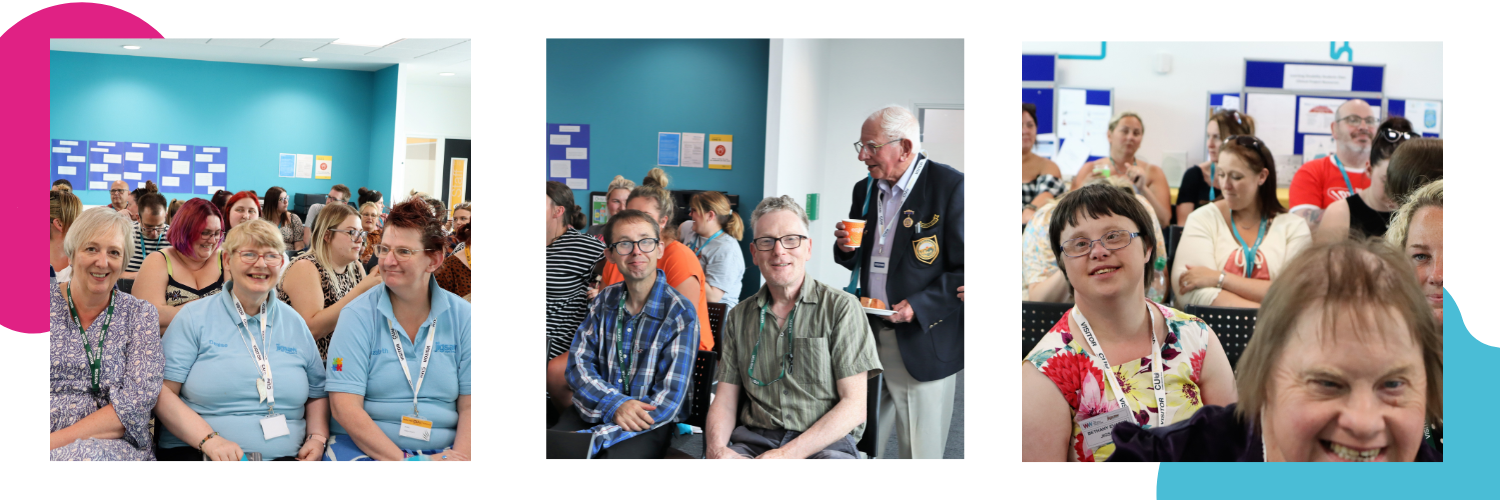
We are thrilled to announce that Jigsaw, our Experts by Experience, at The Wilf Ward Family Trust, has played a significant role in supporting a project at Coventry University. The project, centred around the Clinical Expansion programme, enables student nurses to conduct their clinics during placements. Jigsaw’s invaluable contribution involved sharing their insights into the strengths and weaknesses of annual health checks and how student-led clinics could improve the practice.
Jigsaw is a group of individuals from across Yorkshire, all of whom have a learning disability (LD). With a mission to enhance community inclusion and provide social opportunities for people with LD, Jigsaw actively collaborates with organisations interested in delivering the best services for individuals with learning disabilities.
Health Education England (HEE), in partnership with Coventry University Scarborough, secured funding to promote and integrate high-quality learning disability practitioners into primary care. The aim was to empower student nurses to lead clinics that have a significant impact on the well-being of individuals during annual health checks. The project also aligns with the Clinical Expansion Programme (CPEP), fostering coordinated and proactive services by collaborating with GP practices, NHS community services, social care, and independent providers, with a focus on learning disability care and active living.
To investigate the experiences of individuals undergoing a learning disability annual health check, a workshop was conducted. The workshop aimed to identify gaps and good practices related to different stages of the health check process, from pre-assessment to post-assessment or follow-up. Service users were invited to provide feedback on their experiences, enabling an examination of deficits and the evaluation of variations in the conduct and assessment of learning disability annual checks.
Key areas identified during the workshop included the pre-health check and invitation process, the assessment with a practitioner, and the post-health check actions and referral planning until the next appointment. Participants, including service users and support workers, were encouraged to express their observations and concerns by using post-it notes to categorise them on a poster sheet. The findings of the workshop highlighted both positive experiences and challenges encountered during the learning disability annual health checks. Positives included the provision of easy-read formats for completion of questionnaires, opportunities for adequate preparation, arrangements for co-ordinator visits, and blood tests conducted before the health check appointment. Additionally, previous experiences of healthcare delivery showcased adaptations to promote calmness, such as playing music during assessments.
However, challenges were also identified. Gaining access to appointments without prior information or questionnaires, lack of appointment confirmation letters, and limited use of easy-read questionnaires were among the difficulties faced by service users. Confidence in completing sensitive questionnaires and the formatting of easy-read materials were also noted as areas requiring attention. Moreover, the workshop identified a need for comprehensive assessment of various aspects, such as daily living activities, urination, dental health, diet, genotypical data, emotional well-being, and family systems and support.
During the health check process, positive experiences included comprehensive physical checks, medication reviews, and mental well-being assessments. Some participants commended the clinical environment for creating a calm and conducive atmosphere for the assessment. However, challenges were identified in areas like limited discussion of daily living activities, urination, dental health, diet, and genotypical data. Some consultations were rushed and lacked consideration for emotional health, family systems, carer support, mobility, and accessibility. The use of technical health language caused confusion, and topics such as alcohol, smoking, drug use, and sexual and genital health were not adequately addressed.
Following the health check, participants noted the importance of action plans and health passports. While some individuals received booklets and action plans, the availability of easy-read versions and the lack of a universal practice.
The collaboration between Jigsaw and Coventry University’s Clinical Expansion Programme has yielded valuable insights into improving the annual health check process for individuals with learning disabilities. The workshop conducted with service users and support workers allowed for the identification of both positive experiences and challenges faced during the health check journey.
These findings emphasise the significance of involving individuals with learning disabilities in shaping healthcare practices and ensuring their voices are heard. By incorporating their feedback, the aim is to create a more inclusive and person-centred approach to annual health checks. The insights gained from this project will inform future improvements in service delivery and contribute to enhancing the overall well-being of individuals with learning disabilities.
The success of this collaboration between Jigsaw and Coventry University exemplifies the power of partnership and the value of including diverse perspectives in healthcare initiatives. By working together, organisations and communities can drive positive change, ensuring that individuals with learning disabilities receive the care and support they need and deserve.
Moving forward, it is crucial to continue fostering collaboration between academia, healthcare providers, support groups, and individuals with learning disabilities. By sharing knowledge, exchanging experiences, and actively involving service users, we can work towards creating a healthcare system that truly meets the needs of all individuals, promoting inclusivity, and enhancing the overall quality of care.
